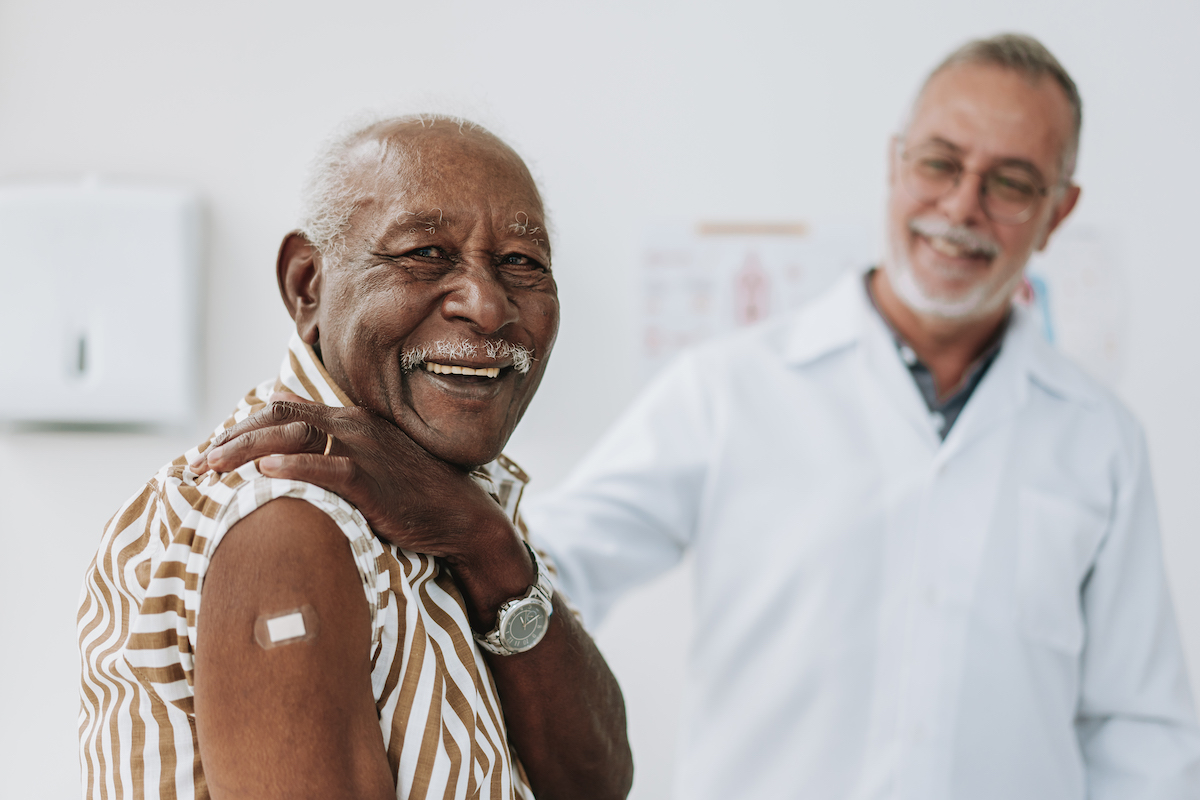
From influenza and COVID-19 to pneumococcal, shingles and more, vaccines help keep you healthy
You may think your days of sitting in the doctor’s office with a cotton ball on your shoulder are over. But while your shots may not come with a superhero bandage anymore, there are a number of immunizations that you should make sure to keep up with as a grownup.
Editor’s note: Over the years, you may have become ambivalent to vaccines. Note “over the years” …
If you’ve made it through life this far, you can probably thank vaccination programs in place when you were school age. If you insist on no vaccinations,please stay away from the elderly; the immune-compromised public, and keep your kids/grandkids home-schooled, or hermetically contained in your own religious school.
“Vaccine immunity wanes over time,” explains family medicine physician Neha Vyas, MD. “So, vaccines that we got as children may no longer be effective.”
What’s more, certain infectious diseases can affect older adults more than younger people. So, as you age, you can benefit from vaccines to protect you from potentially severe infections.
Dr. Vyas and geriatric and internal medicine specialist Ardeshir Hashmi, MD, explain what vaccines are recommended for adults, when to get them and why they matter.
Why adults need vaccines
Whether you’re headed off to college or have been empty-nesting it for years, there are several immunizations that are recommended to help protect you against a host of infections.
“Bacteria and viruses mutate over time. Keeping current with vaccines can help prevent against getting an infection or lessening the severity of an illness,” says Dr. Vyas.
So, for starters, yes, keeping up with vaccines helps keep you healthy. But there’s another layer to it.
When you get vaccinated, you help the people you come into contact with to stay healthier, too. It’s called “herd immunity”—and it happens when enough people get a vaccine and build immunity.
Think of herd immunity as an environment where viruses can’t spread. Germs need to infect people in order to survive. It’s what they do.
When people are vaccinated, they develop defenses to kill off infections. If enough people are vaccinated, viruses can’t hop from one person to the next, spreading disease around. And so,the germs die off.
“If everybody gets vaccinated, then some of these illnesses will actually go away. There won’t be enough opportunities for viruses to invade hosts and keep going,” Dr. Vyas explains.
What affects your vaccine recommendations?
• Your specific vaccine needs will depend on a number of factors, including:
• Your age
• Your immunization history
• Your job
• Your recent (and upcoming) travel destinations
• Your current health
How to know your vaccination status
It can be hard to remember what all you’ve been vaccinated for and when. Childhood memories of those appointments fade. Your medical records may not be digitized or shared across healthcare systems. And your original COVID-19 vaccination card seems to be hiding in the depths of your glove box these days (at least you think that’s where it is). No worries.
If you’re not sure if you’re due for vaccines, a healthcare provider can check by doing a quick antibody test. That’s a blood test that looks for signs of immunity against infections.
Depending on your results, a provider may recommend that you get some new vaccines for protection.
Vaccine recommendations for adults
Vaccines protect you and the people around you. So, staying current matters for your health and for broader society.
Here’s a quick look at some of the vaccines that your healthcare provider may recommend:
| Vaccine | Who needs it | How often |
| Flu | Everyone | Every respiratory season |
| COVID-19 | Everyone | Every time a new vaccine becomes available, about once per year |
| Tdap | Everyone | One every 10 years |
| HPV | Adults ages 45 and younger who haven’t been vaccinated and who are in risk groups for infection | Once |
| MMR | Adults who haven’t been vaccinated or whose immunity has worn off | One or two doses, depending on your risk |
| Hepatitis B | Adults under the age of 60 who haven’t been vaccinated and who are in risk groups for infection | One series (two to four doses) |
| Varicella | Adults who haven’t been vaccinated and haven’t had chickenpox | One series (two doses) |
| RSV | Pregnant people and adults aged 60 and older | One dose every two years, around the beginning of respiratory season |
| Shingles | Adults over the age of 50 | One series (two doses) |
| Pneumococcal | Adults over the age of 65 and anyone at high risk | One dose or more, depending on the type of vaccine given |
Vaccines for healthcare workers
If you work in healthcare, it’s important that you stay current on all the vaccines listed here. In fact, your workplace may require them.
You may also benefit from some immunizations, such as the meningococcal vaccine, which protects against bacterial meningitis.
Talk with your employer about any recommended and required vaccines for your workplace.
Vaccines for overseas travel
Gearing up to see the world? Before hopping on that plane or shipping off on that cruise, be sure to know what vaccines you may need.
When it comes to vaccines needed for travel, it’ll depend on which country you’re visiting. One easy way to do this is to go to the CDC’s traveler’s health website and input your travel destination.
In general, if you’re traveling overseas from the U.S., you can expect to need to be up-to-date on the vaccines already mentioned. It may also be recommended to get vaccinations against illnesses like:
• Typhoid
• Rabies
• Cholera
• Japanese encephalitis
Bottom line?
If you haven’t received any vaccinations since you sat in your pediatrician’s office as a kid, there’s no time like the present to ensure your immunity is where it should be.
Schedule an appointment with your primary care provider to discuss your vaccinations and what you need to keep healthy and protected.
Source: Excerpted from the article at https://health.clevelandclinic.org/vaccines-for-adults











